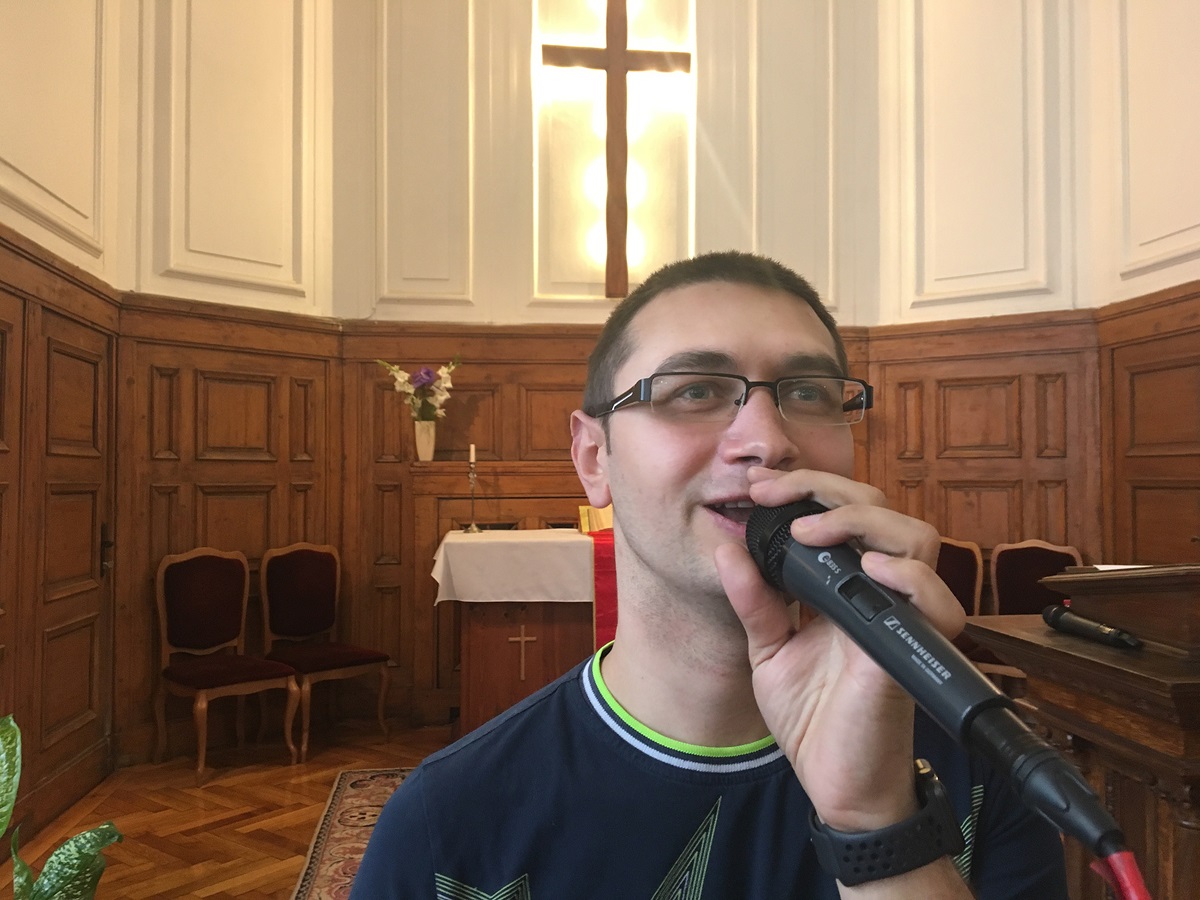Presian Vlaiakov has happy memories of his childhood in Dobrich, Bulgaria: Running outside with friends all day in the summer and playing in The United Methodist Church day care after school.
His mind skips over his father, an alcoholic who left before he was born, and the poor neighborhood where he grew up in his town near the Romanian border.
Instead, he speaks of his mother, a much-loved community nurse, working hard to support her son and daughter, despite being shunned by family for getting a divorce. Vlaiakov remembers his mother taking him to church and together finding a community there.
“I went to the day care center, then I was invited to participate and go to worship. Since then, I am in the church,” Vlaiakov said.
The church provided stability and safety in an unstable time. Divorce still is a source of stigma in Bulgaria, but even more so during the time of communism. Even now, 80 percent of single mothers get no child care support from family or their children’s fathers, according to the Bulgarian Fund for Women.
Bulgarian K-12 public schools operate in two half-day shifts: from 8 a.m. to 1 p.m., then from 1 p.m. to 6 p.m. Children are on their own for the rest of the time a parent is working, unless child care can be arranged. That’s where The United Methodist Church day care stepped in, Vlaiakov said.
That church day care made a difference in his life.
As he grew up, he joined the youth group and took part in service projects. He loved being involved in worship. “The sermon made me think about my personal life. It made a big impression on me. Even though the sermon was not written for me, I found myself in the sermon,” he said. When he had a chance to join the worship praise team, he jumped at it. He loved singing and being a part of the service.
Vlaiakov’s older sister was diagnosed with what has come to be called “black jaundice” the year after he graduated from high school. Information about her illness mostly was kept from him, but even when she slipped into a coma he believed she would recover.
His singing group was scheduled to give a small concert, and his mother encouraged him to go to the performance. Just as he was about to walk on stage, a red thread bracelet his sister had given him fell apart. He knew something bad had happened.
As soon as the show was over, the music director approached him. With her first words, he knew his sister had died. He could not speak. He was stunned and pushed friends away, then went home and sobbed. His pastor called and offered to let him spend some time with his family.
“When I got into the pastor’s car, he told me that he’s not going to try to comfort me. There are times in life where we just need to cry,” Vlaiakov said. “Several days after the funeral, one of the Methodist day care teachers told me that God calls the best people to him to be his angels. I felt better because whether that is true or not, there is hope for me to think that. So, from afterwards, I’ve learned to live with it.”
His faith deepened, and he no longer took life and living for granted. He saw the need to do good regardless of whether anyone was watching or whether someone might do something in exchange. “After that point, I counted on God for everything in my life.”
Now, at 29, Vlaiakov is still at church. He lives in one of the apartments attached to Sofia United Methodist Church, sings in the choir each Sunday, and is available after his work hours as a store manager to help with maintenance or to assist the pastor. Wherever he lives, he makes sure his apartment is less than a 10-minute walk from the church so that he can be available if someone needs him.
“Even as a young boy, when I called him, he would always find a way to be there,” said the Rev. Mihail Stefanov, who was Vlaiakov’s pastor in Dobrich when he was a child and now is pastor of Sofia United Methodist. “He did not ask questions. He did not say, ‘Why me?’ He always does the hard work. Now, when I need a strong man, he is it. He is the example of an involved layperson. When there is no pastor in the church, the church will survive because of people like him.”
Whitehouse is a professor of Broadcasting and Electronic Media at Eastern Kentucky University and a Fulbright Scholar studying at Sofia University in Bulgaria.
News media contact: Vicki Brown, Nashville, Tennessee, (615) 742-5470 or newsdesk@umcom.org. To read more United Methodist news, subscribe to the free Daily or Weekly Digests.
Like what you're reading? Support the ministry of UM News! Your support ensures the latest denominational news, dynamic stories and informative articles will continue to connect our global community. Make a tax-deductible donation at ResourceUMC.org/GiveUMCom.



